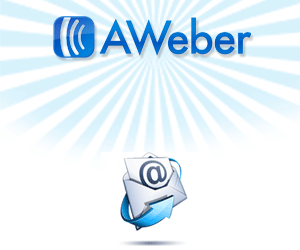Marketing on the Web
The explosive growth of Web Marketing as an industry can be attributed to several developments over the last two decades, some tangible like Affiliate Marketing, and others not as tangible; but one of the underlying reasons for such growth is the large number of specialized fields encompassed in Web Marketing. Such fields include but are not limited to: Article Marketing, , Social Media Marketing, Niche Marketing
and the various types of info products that fall under Resell Rights Marketing.
You’ll notice, however, that one of the most popular, and highest revenue-generating types of Web Marketing has been omitted from the above list of sub-industries; and if you are not familiar enough with the Web Marketing revolution to recognize which sub-industry is being referred to, it is eMail Marketing.
In fact, the field of eMail Marketing had become such a sought after, profit-generating marketing model that certain activities within the field became overwhelming and threatening to consumers, leading to a law being passed (CAN-SPAM Act) to contain it.
That having been said, some marketers currently participating in other types of Web marketing refrained from participating in email marketing, and we think their reasons for such reluctance to market via email make for interesting discussion. More about CAN-SPAM.
Questions, answers, reasons!
So the first question raised pertaining to email marketing is, should these marketers seriously reconsider the reasons they are avoiding this type of advertising? This is an important question because email marketing can be a very important part of many Web marketing campaigns. Do business owners avoid email marketing for fear of spamming accusations?
If this is the reason it may be that they don’t have a clear understanding of what spam is, and what it is not, so they avoid participation in email marketing campaigns to avoid the potential for being labeled a spammer; but why are Internet marketers so afraid of being accused of purveying spam? This is a common fear for a number of reasons.
One such reason is the severe penalties associated with sending spam emails; and many marketers know that recipients of spam have the option to report what they think is spam to their Internet service provider (ISP) for an investigation into the validity of their claim; and if the originator of such email is determined to be a spammer s/he will be subject to severe penalties and a blemished reputation as a result of such charges.
Distinguish email marketing from spam
Web marketers are also afraid to indulge in email marketing because they believe their communication messages will not be well received by potential customers. This is an important consideration because Internet users have in the past – and still are to some extent today – been bombarded with spam on a daily basis; and receiving this quantity of spam every day can certainly be frustrating, which will also anger some Internet users who, as a result of such spamming activity, are not likely to be receptive to messages from email marketers.
The fear that potential customers will view email marketing through the prism of spam marketing keeps many Web marketers from taking advantage of valid, legal, well-intentioned and profitable email marketing strategies.
Believe it or not, despite the prevalent problem with spam, many Internet users are still quite receptive to email marketing; and this is especially true in situations where they specifically requested (opted-in or subscribed to) more information from a particular business owner pertaining to his/her products and services.
Potential clients are particularly receptive to emails which provides something of value to the email recipient; especially emails that contain in depth articles and useful tips or product reviews that have most often been appreciated by consumers.
The opt-in validates email marketing
Additionally, items such as e-newsletters and correspondence courses offered via email can be of particular interest to potential customers. E-newsletters are typically longer documents than traditional email marketing pieces and can provide a great deal of additional information to the email recipient. Email correspondence courses may be offered in short segments and typically amount to a significant amount of information which is likely to be greatly appreciated by the email recipients.
One final way to prevent email recipients from viewing a marketer’s email marketing efforts as spam is for the marketer to only send emails to recipients who register with his/her website and specifically request that s/he send them additional information and promotional materials. This opt in formula is ideal because it ensures the marketer that s/he is not wasting email marketing efforts on recipients who are not interested in products or services offered by the marketer.
It also ensures that recipients of a given email marketing campaign do not view the informative and promotional materials they are receiving as spam. This technique for compiling an email distribution list is quite effective, but it is important to remember that information on how recipients can opt out of receiving future emails should always be included and a reputable e mail marketing company is a great service to help in this regard.
Provide an opt-out feature!
The “opt-out” or “unsubscribe” instructions and link is important because some email recipients may at one time have been interested in receiving marketing emails, but over time this may have a change of heart; and if they are no longer interested in these emails, they may begin to view the emails as spam if they are not given the option of being removed from the subscriber list.
As a token of our appreciation the free ebook titled, Storytelling Marketing can be yours if you have any interest in the art of storytelling. All you have to do is download it here, enjoy the reading and learn how storytelling can be a powerful ally in any business or marketing pursuit!
Digital & Electronic Products – Unbeatable in Quality and Price!




